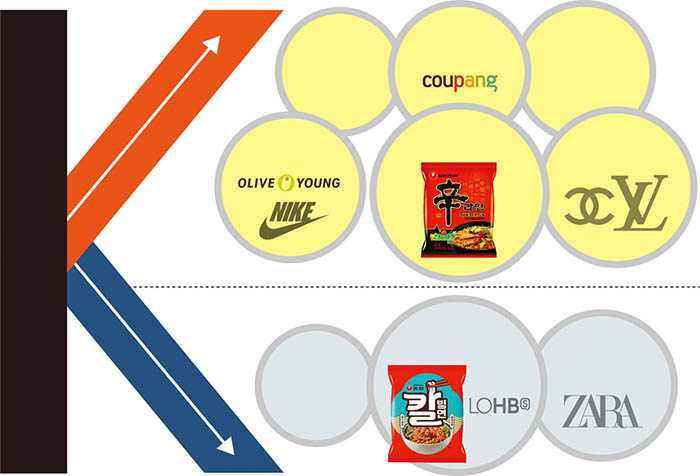Spending Disparity Deepens
24 May, 2021

The coronavirus pandemic has widened the disparity in spending between rich and poor.
The pandemic didn't have an enormous financial impact on higher-paid office workers who can still make a living telecommuting, but persons who work in lower-paying service-sector jobs were hit hard. The better-off therefore had extra disposable income and frequently bought luxury things and services to pay for their inability to visit abroad, while low-profit earners had to lessen on spending and purchase cheap if.
The Hyundai Department Retail store in Pangyo south of Seoul saw earnings soar 9.4 percent in 2020, the best among all branches because Pangyo is home to the headquarters of IT companies like Naver and Kakao and video game developers. Sales of precious stones in the mall soared 50 percent and of wristwatches 25.9 percent.
But at the branch found in the southern industrial city of Ulsan, product sales fell 15.1 percent and in the central region branch in Cheongju, North Chungcheong Province 11.3 percent.
The primary beneficiaries were high end labels like Chanel, Hermès and Louis Vuitton, all of which posted double-digit growth in Korea last year. Louis Vuitton’s revenue rose 33.4 percent to surpass W1 trillion (US$1=W1,129).
Mid to low-priced apparel makes on the other hand were hit hard. Zara's revenue plunged 26.5 percent to W305.6 billion. But businesses selling cheap items did very well, with big-box shop E-Mart Traders seeing revenue surge 23.9 percent.
Leading types that boast good recognition possess thrived in lockdown since consumers have tended to stick to proven products. New merchandise releases slowed to a trickle, while taste testing or different offline marketing campaigns pretty much disappeared.
CJ Olive Small, the No. 1 merchant of health and beauty products, opened 13 new retailers this past year, whereas GS Retail's Lalavla and Lotte Shopping's LOHB's, rated second and third, shut down 16 and 28 stores.
A similar trend has been seen among global brands. The world's leading players grew a lot more in the pandemic due to their agility and adequate cash to react to a changing business environment. For example, reduced outdoor actions depressed revenue at sportswear makes Adidas and Under Armour, but No. 1 player Nike enjoyed exceptional growth because of its change to online sales.
Source:
TAG(s):
